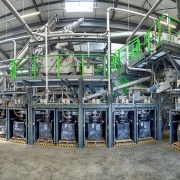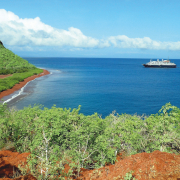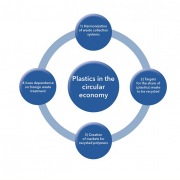FEAD and ČAObH’s Third International Conference
The third international conference on ‘Higher Energy and Material Security in EU Countries’, jointly organised by FEAD (European Waste Management Association) and ČAObH (Czech Association for Circular Economy), brought together various stakeholders, including waste management companies, universities, and Czech and European legislators.
The conference was opened with introductory speeches by Zdeněk Horsák, President of ČAObH, and Claudia Mensi, President of FEAD, setting the tone for a full day of discussions centred on four key themes: energy, recycling, climate and economy, and water.
With new mandates for European institutions taking place, the conference came at a pivotal time. As the EU charts its course for the next five years, it’s essential to explore new strategies to keep European industries competitive, sustainable and circular.
The discussions throughout the day demonstrated that sustainability and competitiveness can, and should, go hand in hand, particularly within the framework of the circular economy. This aligns closely with FEAD’s Manifesto, which calls for a European Industrial Deal to ensure that Europe’s industries are sustainable, competitive, and circular. By supporting the use of recycled materials, the industrial competitiveness can be strengthened and the dependence on external suppliers of raw materials can be reduced.
The conference featured a diverse list of speakers, including representatives from leading European waste management companies, national institutions, the European Commission, and the European Parliament. Together, they examined the challenges and priorities of the upcoming mandate, with a focus on strengthening the role of the circular economy and the European companies across key sectors such as energy, critical materials, and water.
Aurel Ciobanu-Dordea, Director General for the Circular Economy at the European Commission, presented on ‘The vital role of the waste management sector and the circular economy in tackling climate change’, stressing that ‘if we want to stay on track for our decarbonisation objectives in 2050, we need all hands-on deck, and a significant contribution will come from circular economy. The question is how we can scale up circular economy models to become dominant models in our economy. For this, we need to rebalance the current situation and make recycled materials more appealing to be used at scale in products without negatively impacting the price of those products’.
Claudia Mensi, FEAD President, highlighted waste management as ‘the pillar of a sustainable society, ensuring that our environment is clean and that industries have access to sustainable raw materials’.
Zdeněk Horsák, President of ČAObH, stated that the Czech Association for Circular Economy is playing an important role at national and European level in enhancing industry competitiveness. He introduced the concept of a ‘Climate-Responsible Circular Economy’, advocating for its adoption at the EU level to holistically connect social, economic, and environmental aspects for long-term sustainability.
FEAD would like to sincerely thank the speakers: Jana Krutáková, Marco Farina, Václav Bartuška, Martin Růžička, Dr. Andreas Opelt, Eduard Muřický, Aurel Ciobanu-Dordea, David Sury, Ondřej Krutílek, Jakub Tomaštík, Zbyněk Kozel, Ondřej Beneš, and Ludvík Rutar, for their thought-provoking presentations and insights.
FEAD and CAObH are committed to supporting the efforts towards a competitive circular economy in close collaboration with both Czech and European institutions, advocating for a sustainable future for Europe’s waste management sector and its contributions to energy and material security.
Source: FEAD (Prague, October 31, 2024)







